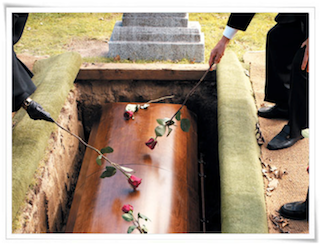Credit Cards & Loans
Cost of dying reaches £7,622

The average cost of dying – including funeral, burial or cremation and estate administration – has risen by 7.1% over the past 12 months and now stands at £7,622, a study claims.
The authors of the report from the University of Bath estimate that over 100,000 people will struggle to pay for a funeral this year alone.
They are calling for the Government to tackle ‘funeral poverty’ which they say is 50% higher than three years ago.
In spite of the lowest ever recorded mortality rates for England and Wales, the cost of dying has steadily increased over recent years. The average cost of a funeral rose by a massive 80% between 2004 and 2013, and the costs of dying are expected to continue to increase over the next five years.
On average, the price of a typical funeral, including non-discretionary fees and a burial or cremation, is £3,456. The average amount spent on extras such as a memorial, flowers and catering is £2,006. Discretionary estate administration costs have increased significantly to £2,160.
For families on low incomes, the Social Fund Funeral Payment, first introduced in 1988, is intended to support those who struggle to find the money to pay for a funeral.
However, the report challenges the effectiveness and availability of this provision.
The research also found that Local Authorities have experienced a small but notable increase in demand for Public Health Funerals, on the grounds that individuals are not prepared to organise or pay for the funeral of a family member.
Baroness Sally Greengross, chief executive of the International Longevity Centre – UK, said: “With growing funeral costs, quite simply, growing numbers of people might find they can’t afford to die.
“Government must act now before the current issue of funeral poverty becomes an even more significant future crisis. As a society we don’t talk enough about dying. But nor do public policy makers. We must find a way to open a debate about dying early and ensure that we and our families are as prepared as we possibly can be.”